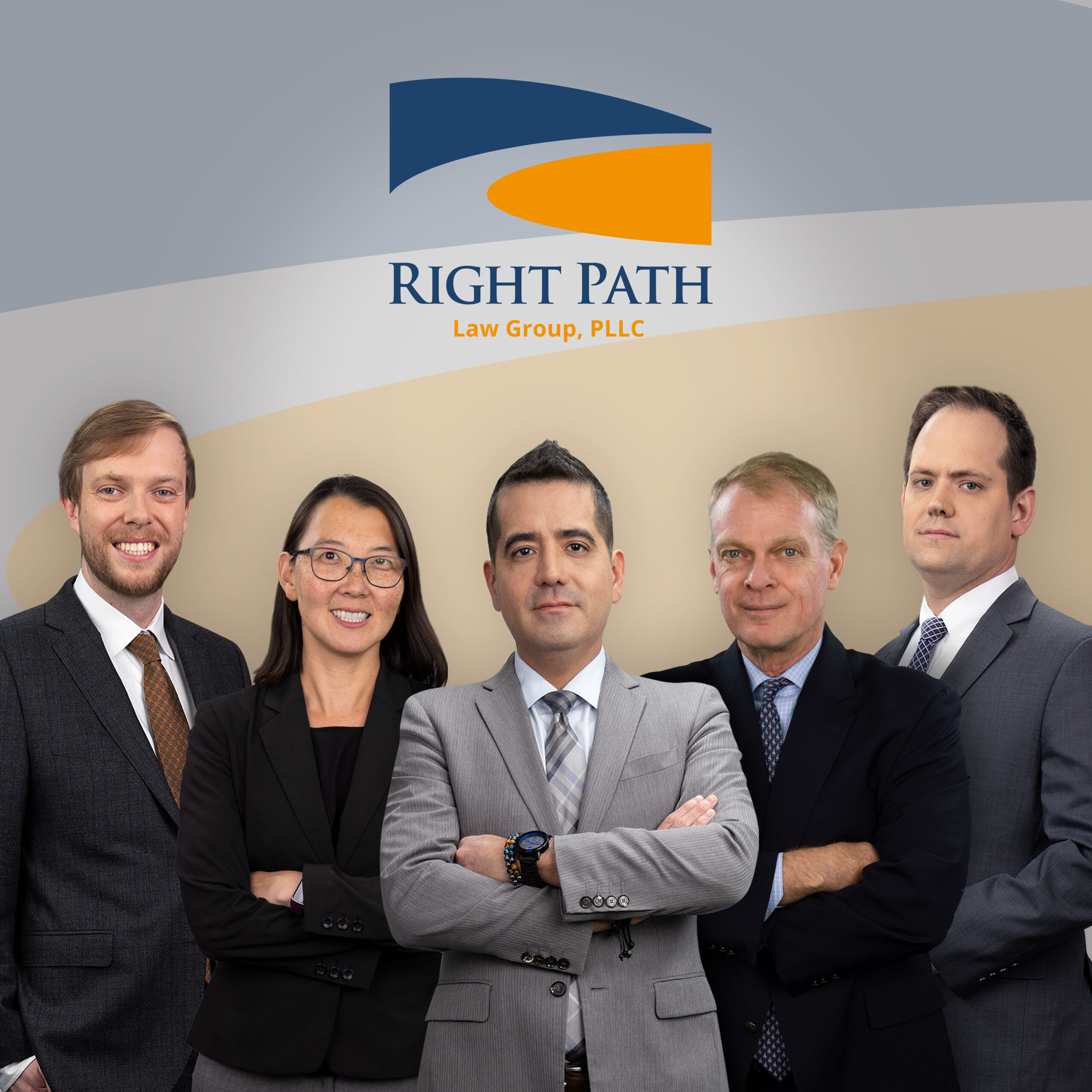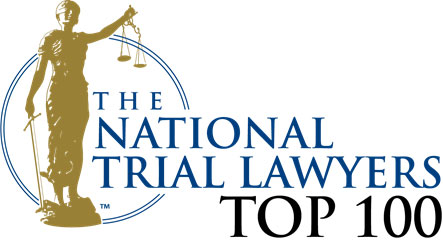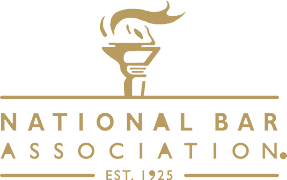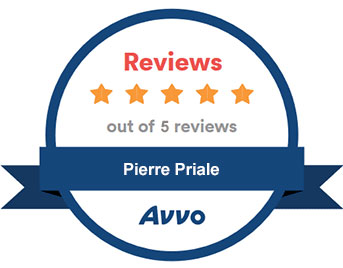Drunk drivers pose a serious risk to others on the road, and alcohol impairment is responsible for causing thousands of serious and fatal accidents each year. If a drunk driver injured you or killed a close family member in Fairfax, you are probably considering your options for holding the person accountable and getting the compensation you need.
The Fairfax drunk driving attorneys at Right Path Law Group are here to help you through this difficult time by offering a free consultation regarding your Fairfax drunk driving accident claim. We will review your case at no cost and advise you of your options for pursuing compensation.
You can also count on us to fight to protect your rights and interests to help you get the full and fair financial recovery you deserve. Contact us today at (571) 556-8710 for a free case evaluation.
Why Choose Right Path Law Group for Your Fairfax Drunk Driving Accident Claim

Choose an attorney with the skills and experience to handle your claim.
Our law firm’s founder, attorney Pierre Prialé, has more than 15 years of legal experience, and he has in-depth knowledge of Virginia’s DUI and personal injury laws. He is an active member of the Virginia State Bar and has received recognition as a highly effective and successful trial lawyer.
Since we started our practice, we have recovered substantial compensation for injured clients throughout Fairfax and across Northern Virginia. Our mission is to deliver the personalized, compassionate representation our clients deserve while remaining assertive toward insurance companies and the at-fault parties to hold them accountable and help our clients recover the maximum compensation possible.
Fairfax personal injury lawyers also work on a contingency fee basis, so you won’t have to pay anything out of pocket for us to represent you, and we will only accept a fee if we obtain compensation for you.
Call us today or go online and complete our online contact form to speak with an attorney about your Fairfax drunk driving accident claim.
Fairfax Drunk Driving Accident Statistics

Although drunk driving accident rates have decreased in recent years, impaired driving continues to be a real problem in Fairfax and throughout Virginia. In a recent year, the Virginia Department of Transportation (VDOT) reported that around 32 percent of all traffic fatalities in the Commonwealth were alcohol-related, and 264 people lost their lives in drunk driving accidents.
Additionally, VDOT claims that Fairfax County experiences more DUI-related fatalities than any other county in Virginia. On average, 19 people die each year in accidents involving alcohol. Also, more than 22 percent of all traffic fatalities in Fairfax occurred because of alcohol impairment over a recent four-year period.
One of the most disturbing aspects of DUI-related injuries and fatalities is that they are entirely preventable. They would not occur were it not for someone’s inexcusable decision to drive while intoxicated. With the help of an attorney, you can hold the at-fault driver liable for the pain and losses you suffered and get the compensation you need.
Virginia’s DUI Laws
Virginia has some of the toughest DUI laws in the country. The legal blood alcohol content (BAC) limit for most drivers is 0.08%, but the Commonwealth holds zero tolerance for drivers under the age of 21. Underage drivers can face DUI charges if found to have any alcohol in their system and receive harsh penalties if their BAC is between 0.02 and 0.08 percent. Also, those who hold commercial driver’s licenses (CDLs) can face DUI charges if their BAC is 0.04 percent or higher.
For a first offense of DUI, you can lose your license for a year and have to pay a $250 fine, plus possible restitution. You may also have to install an ignition interlock device on your vehicle.
Penalties increase for subsequent DUI convictions and may include jail time, substantial fines, and revocation of your driver’s license for several years or even indefinitely. Upon conviction of any DUI offense, you will also have to attend a mandatory Alcohol Safety Action Program.
Why Are Drunk Drivers so Dangerous?

Drunk driving accidents occur when individuals operate vehicles under the influence of alcohol, impairing their judgment, coordination, and reaction times. These accidents can have devastating consequences for all parties involved.
Some things that make drunk drivers so dangerous include:
- Impaired judgment: Alcohol impairs a person’s judgment and decision-making abilities. Drunk drivers may make poor choices on the road, such as speeding, running red lights, or attempting risky maneuvers.
- Reduced reaction times: Alcohol impairs a driver’s ability to react quickly to changing road conditions or unexpected events. This can result in a failure to brake or swerve to avoid collisions.
- Impaired vision: Alcohol can affect a driver’s vision, making it difficult to see clearly. This can lead to accidents caused by failing to notice other vehicles, pedestrians, or obstacles in the roadway.
- Decreased coordination: Alcohol affects a person’s fine motor skills and coordination. Drunk drivers may struggle to maintain control of the steering wheel, apply brakes smoothly, or make precise movements, increasing the risk of accidents.
- Poor concentration: Alcohol can lead to a lack of focus and concentration. Drivers under the influence may become easily distracted or lose track of their surroundings, leading to accidents.
- Weaving and swerving: Drunk drivers often exhibit erratic driving patterns, such as weaving in and out of lanes, swerving, and making wide turns. These behaviors can increase the likelihood of collisions.
- Riskier behavior: Impaired individuals are more likely to engage in risky behaviors on the road, such as excessive speeding, tailgating, or aggressive driving.
- Wrong-way driving: Intoxicated drivers may enter highways or roads in the wrong direction, leading to head-on collisions and severe injuries.
- Running stop signs and red lights: Drunk drivers may disregard traffic signals, leading to T-bone collisions or intersection accidents.
- Rollover accidents: Alcohol impairment can cause drivers to lose control of their vehicles, potentially leading to rollover accidents, which can be especially dangerous.
- Pedestrian and bicycle accidents: Drunk drivers may fail to notice pedestrians or cyclists, leading to collisions with vulnerable road users.
- Rear-end collisions: Alcohol-related impairment can result in a failure to brake in time, causing rear-end collisions with stopped or slow-moving vehicles.
- Fatigue: Drinking alcohol can exacerbate driver fatigue, making it more likely for individuals to fall asleep at the wheel or become less alert.
- Multiple-vehicle pileups: Drunk driving accidents can sometimes lead to chain reactions involving multiple vehicles, especially on highways or busy roads.
To prevent drunk driving accidents, it’s crucial for individuals to never drive under the influence of alcohol or drugs and instead use a taxi or rideshare service to get home. Although law enforcement agencies play a critical role in enforcing DUI laws and promoting awareness of the dangers of drunk driving, DUI accidents still occur.
Hire a Fairfax personal injury lawyer at Right Path Law Group as soon as possible after a drunk driver caused an accident that injured you or someone you love.

What Are Common Drunk Driving Accident Injuries in Fairfax?

Drunk driving accidents can result in a wide range of injuries, and the severity of these injuries often depends on various factors, including the speed of the collision, the type of vehicles involved, the use of seatbelts and safety equipment, and the point of impact.
Common injuries sustained in drunk driving accidents include:
- Head injuries: Traumatic brain injuries (TBI) can occur when a person’s head makes contact with a hard surface, such as the steering wheel, windshield, or dashboard. TBIs can range from concussions to more serious injuries with long-term cognitive and physical impairments.
- Spinal cord injuries: High-impact collisions can lead to spinal cord injuries, which may result in paralysis or loss of sensation below the injury site. Catastrophic injuries to the spinal cord are permanent and life-altering.
- Neck and back injuries: Car accident victims often suffer whiplash, herniated discs, and other neck and back injuries are common in drunk driving accidents. These injuries can cause chronic pain and limited mobility.
- Fractures and broken bones: Drunk driving accidents can lead to fractures or broken bones in various parts of the body, including the arms, legs, ribs, and pelvis.
- Internal injuries: Blunt force trauma from a collision can cause internal injuries, such as damage to the organs (e.g., liver, spleen, kidneys), internal bleeding, or a punctured lung.
- Facial injuries: Facial injuries, including fractures of the jaw, nose, and cheekbones, can result from contact with the steering wheel, airbags, or other objects within the vehicle.
- Cuts and lacerations: Glass shards, broken vehicle parts, or debris from the accident can cause cuts and lacerations, some of which may require stitches or surgery.
- Burns: If the collision leads to a fire or explosion, drivers and passengers can suffer burns of varying degrees, which may require extensive medical treatment and surgeries.
- Amputations: In severe motor vehicle crashes, limbs may be crushed or severed, necessitating surgical amputation.
- Emotional trauma: Beyond physical injuries, survivors of drunk driving accidents often experience emotional trauma, including post-traumatic stress disorder (PTSD), anxiety, depression, and survivor’s guilt.
- Road rash: Road rash occurs when a person’s skin scrapes against the road during an accident. It can cause painful abrasions and, in severe cases, require skin grafts.
- Wrongful death: Tragically, drunk driving accidents can result in fatalities. Families of drunk driving accident victims may pursue wrongful death claims to seek compensation for their loss.
- Psychological and cognitive effects: Some survivors of drunk driving accidents experience cognitive impairments, memory problems, and changes in behavior due to brain injuries or emotional trauma.
Seek immediate medical attention after a drunk driving accident, even if injuries seem minor at first, as some injuries may not become apparent until later. Early medical evaluation and treatment can prevent complications and improve outcomes.
If you or a loved one has been injured in a drunk driving accident in Fairfax, consult a personal injury attorney to understand your rights, pursue compensation, and navigate the legal process.
What Types of Compensation Can I Receive for a Fairfax Drunk Driving Accident Claim?
You may obtain various types of compensation to help cover the financial and non-economic losses you’ve incurred as a result of a drunk driving accident in Fairfax.
The specific compensation you can receive will depend on the circumstances of your case, but the types of compensation you can potentially receive include:
- Medical expenses: You can seek compensation for all reasonable and necessary medical expenses related to the drunk driving accident. This includes emergency room care, hospital stays, surgeries, doctor’s visits, prescription medications, physical therapy, and rehabilitation.
- Lost income: If your injuries have caused you to miss work or have resulted in a loss of income, you can claim compensation for these lost earnings. This includes both past and future lost wages.
- Property damage: You can seek reimbursement for the repair or replacement of your vehicle and any personal property damaged in the accident.
- Pain and suffering: Non-economic damages, such as pain and suffering, encompass the physical and emotional distress you’ve endured due to the accident and your injuries. These damages are often more challenging to quantify but can be a significant part of your claim.
- Mental anguish: This includes compensation for psychological distress, anxiety, depression, and other mental health issues resulting from the accident.
- Loss of enjoyment of life: If your injuries have diminished your ability to participate in activities and hobbies you once enjoyed, you may be eligible for compensation for this loss.
- Scarring and disfigurement: Compensation may be awarded if the accident resulted in permanent scarring or disfigurement, as these injuries can have a lasting impact on your self-esteem and quality of life.
- Wrongful death damages: If the DUI accident resulted in the death of a loved one, surviving family members may be entitled to compensation for funeral and burial expenses, loss of financial support, and loss of companionship.
- Punitive damages: In cases of extreme negligence or intentional misconduct by the drunk driver, the court may award punitive damages to punish the at-fault party and deter similar behavior in the future.
- Legal fees and costs: You may be able to recover legal fees and costs as part of your compensation.
To navigate the legal process effectively and maximize your chances of obtaining fair compensation, you should consult with an experienced Fairfax drunk driving accident attorney from Right Path Law Group who can evaluate your case, negotiate with insurance companies, and represent your interests throughout the legal proceedings.
What's the Process of Obtaining Compensation for My Drunk Driving Accident Injuries in Fairfax?
Obtaining compensation for your injuries in a drunk driving accident in Fairfax typically involves dealing with insurance companies, gathering evidence, and, if necessary, pursuing legal action against the at-fault driver.
Here’s a general overview of the process:
- Seek immediate medical attention: Make your health and safety your top priority. Seek medical attention for your injuries promptly, even if they seem minor at first. You need medical records for evidence in your claim.
- Contact the police: If you haven’t already done so, report the accident to the police. A police report will document the details of the accident, including evidence of the drunk driver’s impairment.
- Gather information: Collect as much information as possible about the accident, including the names and contact information of all parties involved, witnesses, and the responding police officers. Take photos of the accident scene, vehicle damage, your injuries, and any relevant road conditions or traffic signals.
- Notify your insurance company: Inform your own insurance company about the accident. Provide them with the necessary details but avoid admitting fault or making statements that could be used against you later.
Consult an Attorney

Among the most important steps you can take after a drunk driver injures you or a close family member is to speak with a personal injury attorney who has experience handling drunk driving accident cases. They can help you navigate the legal process, assess the strength of your claim, and protect your rights.
Your attorney can be an invaluable resource to assist with:
- Obtaining a copy of the police report: This report will contain important information about the accident, including any citations issued to the impaired driver.
- Documenting your injuries and treatment: A lawyer can help you keep detailed records of your injuries, medical treatment, and related expenses. This includes medical bills, prescriptions, and notes from doctors or therapists.
- Negotiating with insurance companies: Your attorney will communicate with the at-fault driver’s insurance company and negotiate for a fair settlement on your behalf. Insurance adjusters may attempt to minimize your claim, so you need legal representation.
- Determining liability: Your attorney will work to establish liability by proving that the drunk driver’s actions caused the accident and your injuries. This may involve collecting evidence, such as witness statements, medical records, and accident reconstruction reports.
- Filing a lawsuit (if necessary): If the insurance company refuses to offer a fair settlement through negotiations, your attorney may advise you to file a lawsuit against the drunk driver. This formal legal process will involve court proceedings, discovery, and potentially a trial.
- Representing you at trial (if applicable): If your case goes to trial, your attorney will present evidence, argue your case, and seek a judgment from the court. Your lawyer can make this lengthy and complex process far easier.
- Collecting compensation: Your attorney can help you collect any compensation you receive through an insurance settlement or court award.
Throughout this process, your attorney will guide you, advocate for your rights, and work to maximize the compensation you receive for your injuries. Keep in mind that each drunk driving accident case is unique, and the specific steps and timeline may vary depending on the circumstances.
Consulting an experienced attorney will ensure you receive fair compensation for your injuries.
How Long Do I Have to File a Drunk Driving Accident Lawsuit?
For most personal injury claims based on negligence—including drunk driving accident claims—Virginia law imposes a two-year statute of limitations to file your claim in civil court. If you do not have an attorney file your lawsuit within that time, the court will likely dismiss your case, and you will lose any legal recourse you have to pursue compensation.
Considering the complexity of DUI accident claims and how much evidence and documentation your attorney will need to collect, you have no time to waste in contacting our experienced Fairfax drunk driving accident lawyers and getting the process started.
Reach Out to an Experienced Fairfax DUI Accident Lawyer ASAP

The fact that someone injured you or killed a close family member due to their deplorable decision to drink and drive only compounds your pain and suffering. You have rights and options available to hold the at-fault party accountable and get the compensation you need.
Contact the Fairfax drunk driving accident lawyers at Right Path Law Group at (571) 556-8710 as soon as possible for a free consultation about your claim and assistance throughout the process. We will thoroughly investigate the accident and document your injuries and losses to help you build a strong case to increase your chances of getting everything you need to realize a full recovery.
